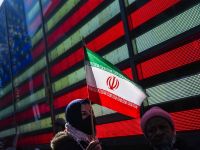Despite the signing of a recent national unity agreement between Hamas and Fatah, arrests on the basis of political affiliation continue unabated in the West Bank, while summons on political affiliation continue in Gaza, a reconciliation committee alleges.
Khalil Assaf, a member of the Freedoms Committee in the West Bank, told Ma'an that political arrests by security forces in the region have continued since the sign of the Beach Camp agreement at the end of April, albeit at a slower pace than before.
Assaf stressed the need for a clear political decision to halt these arrests, highlighting that security forces continue to pursue individuals suspected of affiliation with Hamas in the West Bank on a near daily basis, especially among students and in the cities of Hebron and Tulkarem.
Despite the open presence of Hamas members in rallies and protests across the West Bank in recent weeks, Assaf warned that the campaigns of arrests "strained the reconciliation atmosphere" in the Fatah-led region.
The secretary of the Freedoms Committee in the Gaza Strip Khalil Abu Shamala, meanwhile, said that although the Hamas-run government was not engaging in political arrests in the coastal enclave, summons on grounds of political affiliation continued, albeit less frequently since the national unity agreement was signed.
Abu Shamala said that the Freedoms Committee, which was set up to help implement political reunification, has made a number of recommendations, especially with regards to the need to the distribution of passports to all people without exception.
Currently, Gaza residents must apply for passports through the mail to the West Bank, a process which causes substantial burden, but Abu Shamala said that soon people will be able to apply through the interior ministry in Gaza. Thousands of Gaza residents have been prevented from receiving passports during the seven years of division as a result of political tensions.
He also stressed that the next government will put an end to political arrests and that it will open all closed associations through the re-activation of the Associations Law.
The Freedoms Committee was set up as part of previous national reconciliation efforts in order to ensure the release of all political prisoners as well as to ensure the increase in political freedoms, the end of newspaper bans, and the reopening of charities and other bodies closed during around seven years political division between the Fatah-led Palestinian Authority government in the West Bank and the Hamas-run Gaza Strip.
The committee's work has become more urgent since the April 23 deal of national unification was signed by the two largest Palestinian political movements, Hamas and Fatah.
The deal gave both sides five weeks to set up a government of national unity.

Al Bawaba






